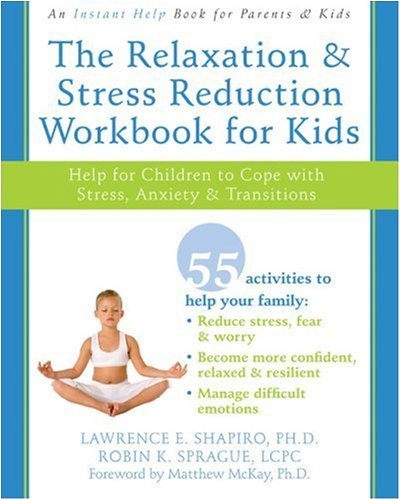Tips to help your child cope with dentist & doctor fears
 Lots of children feel afraid about visiting the dentist or getting an injection at the doctor's office. Although it's difficult to find statistics about the rates at which these fears occur, one Swedish study found that over 13% of women experienced dentistry phobia; the majority of those women could not recall a specific anxiety-provoking incident that sparked their fear, and the phobic women were more likely to have missing teeth and dentures. When your kids are afraid of a trip to the dentist or the doctor, it can be anxiety-provoking for you, too - no one wants to hold their child down so they can receive their vaccinations! But what can parents do?
When psychologists talk to clients about feelings, they often break them down into three components: the physical sensation, the thoughts that the clent has about the situation, and the behaviour that accompanies the feelings. When we're talking about fear, sadness, or anger, any of these three elements can make the situation worse, but a change in one area might have a positive impact on the others. It's often hard for young kids to describe their thoughts and physical sensations, but it can be a valuable exercise for older children. Parents can help children learn to monitor their emotions by labeling them; saying, "I notice you look sad today. Is anything the matter?" can help kids increase their awareness of their feelings.
Lots of children feel afraid about visiting the dentist or getting an injection at the doctor's office. Although it's difficult to find statistics about the rates at which these fears occur, one Swedish study found that over 13% of women experienced dentistry phobia; the majority of those women could not recall a specific anxiety-provoking incident that sparked their fear, and the phobic women were more likely to have missing teeth and dentures. When your kids are afraid of a trip to the dentist or the doctor, it can be anxiety-provoking for you, too - no one wants to hold their child down so they can receive their vaccinations! But what can parents do?
When psychologists talk to clients about feelings, they often break them down into three components: the physical sensation, the thoughts that the clent has about the situation, and the behaviour that accompanies the feelings. When we're talking about fear, sadness, or anger, any of these three elements can make the situation worse, but a change in one area might have a positive impact on the others. It's often hard for young kids to describe their thoughts and physical sensations, but it can be a valuable exercise for older children. Parents can help children learn to monitor their emotions by labeling them; saying, "I notice you look sad today. Is anything the matter?" can help kids increase their awareness of their feelings.
Once you've broken down the feeling, kids can begin to tackle it using strategies that address one or more of the three factors: the physical sensations, thoughts, or behaviours. Relaxation or breathing exercises are behaviours that can reduce physical stress. The Relaxation and Stress Reduction Workbook for Kids has examples of relaxation exercises and other activities to reduce stress; regular practice is often needed for kids to be able to use these skills in times of stress. The book even gives parents ideas about how to teach the techniques.
It can also be helpful for kids to build a "stress kit" that they can bring to the dentist's or doctor's office to aid relaxation. I saw a social worker speak about using this when she was working with traumatized youth. After listing the 5 senses, kids write down 3 things for each of the senses that make them feel good. The smell of cookies baking, the sound of traffic or rain, the feel of a favourite blanket or stuffed toy are all good examples that fit with this exercise. After thinking of 15 things that make them feel good, parents and kids work together to put as many of those items as possible into a portable format. Many comforting sounds can be downloaded online and burned to a CD or added to an MP3 player. Pictures, perfumes,and air fresheners could all be used. Once the kit is put together, the child can bring it to the dentist's or doctor's office and use the materials to cope with anxiety. Sometimes the items simply provide a distraction, which might be enough to get through the appointment.
 If your child can identify thoughts that contribute to fear, it might be helpful to discuss them. Working with your child to develop a number of things they can say or think to themselves might also provide them with a greater sense of control over their emotions.
If your child can identify thoughts that contribute to fear, it might be helpful to discuss them. Working with your child to develop a number of things they can say or think to themselves might also provide them with a greater sense of control over their emotions.
Finally, I've sometimes found rehearsal to be a valuable exercise. If you and your child can walk through the appointment in a step-by-step fashion, you can discuss possible strategies that could be used throughout the appointment. This might also give you a more specific idea about the elements of the visit that the child fears. Sometimes, what seems like a general fear of going to the dentist is really a reaction to the sound of the drill, for example. Regular rehearsal of the appointment might make it seem more familiar, and less frightening to the child. If you try this strategy, it could be useful to remember that sometimes, unexpected things can happen - in a time of calm, ask your child to discuss coping strategies that could be used if something surprising happens. This kind of preparation might increase your child's sense of mastery over their anxiety!
Vote for The Family Anatomy Podcast at Podcast Alley and for the blog at Blogger’s Choice!
Note: Posts on Family Anatomy are for education only. If you need to talk to someone about family or mental health issues, you can get a referral from your family doctor.
